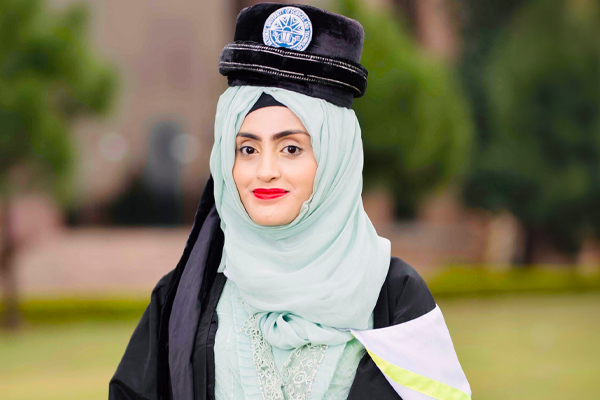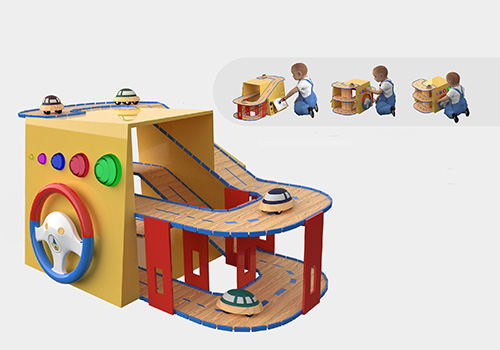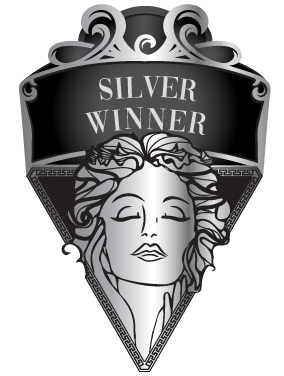
Interview
Maryam Abbas
1 Please give us a brief bio of yourself and your design background.
I am Maryam Abbas, an Industrial Design graduate from the National University of Sciences and Technology (NUST) in Pakistan. My journey in design has been driven by a passion for creating solutions that address real-world problems, with a particular focus on assistive technologies and products that enhance the quality of life for individuals with disabilities.
2 What made you become/why did you choose to become a designer/artist?
My choice to become a designer was fueled by my desire to make a tangible impact on the world through innovative solutions. I am fascinated by the power of design to transform lives, and I wanted to be part of a field that blends creativity with functionality to solve complex challenges.
3 Tell us more about your business/company, job profile, and what you do.
Currently, I am focusing on developing and refining my project, NEUROCLE, which is a therapy-assistive toy designed for children with Hemiplegic Cerebral Palsy. My role involves extensive research, design iteration, and user testing to ensure that the product effectively meets the needs of its target audience.
4 What does “design” mean to you?
To me, design is a problem-solving tool, a medium through which we can address challenges, enhance experiences, and improve the quality of life. It is a blend of art, science, and empathy, requiring a deep understanding of the user
5 What’s your favorite kind of design and why?
My favorite kind of design is inclusive design. I believe that products and solutions should be accessible to everyone, regardless of their abilities or circumstances. Inclusive design not only caters to a wider audience but also fosters innovation and creativity.
6 To you, what makes a “good” design?
A good design is user-centric, functional, aesthetically pleasing, and sustainable. It should address the user
7 Describe your design style and its main characteristics.
My design style is focused on simplicity, functionality, and inclusivity. I strive to create products that are straightforward, easy to use, and accessible to a diverse range of users. I believe in the power of clean lines, intuitive interfaces, and thoughtful features that enhance the user experience.
8 Tell us about your design process.
My design process begins with extensive research to understand the user
9 Do you think your country and its cultural heritage has an impact on your design process?
Yes, I believe that my Pakistani heritage plays a significant role in my design process. The rich cultural heritage of Pakistan provides a unique perspective and a deep sense of empathy, which is crucial in creating designs that are meaningful and impactful.
10 Congratulations! As the winner of the 2023 MUSE Design Awards, what does it mean to you and your company and team to receive this award distinction?
Winning the 2023 MUSE Design Award is an incredible honor and a testament to the hard work and dedication that went into the NEUROCLE project. It is a recognition of our commitment to creating impactful and innovative design solutions, and it serves as a motivation to continue pushing the boundaries of what is possible in design.
11 Can you explain a bit about the winning work you entered into the 2023 MUSE Design Awards, and why you chose to enter this project?
NEUROCLE, the project that won the 2023 MUSE Design Award, is a therapy assistive toy designed for children with Hemiplegic Cerebral Palsy. It addresses the lack of engaging and context-based therapy assistive products in the market, providing a solution that is not only effective but also appealing to children. I chose to enter this project into the MUSE Design Awards because I believed in its potential to make a real difference in the lives of children with Cerebral Palsy, and I wanted to share this innovative solution with a wider audience.
12 What was the biggest challenge with this project?
The biggest challenge with the NEUROCLE project was ensuring that the design was both effective in its therapeutic goals and engaging for the children. Balancing functionality with an appealing aesthetic required extensive research, user testing, and iterations to get it just right.
13 How has winning an Award developed your practice/career?
Winning the MUSE Design Award has provided a significant boost to my career, bringing recognition and credibility to my work. It has opened up new opportunities for collaboration and has helped in establishing my reputation in the field of design.
14 What are your top three (3) favorite things about our industry?
First, the ability to make a tangible impact on people
15 What makes your country specifically, unique in the design industry?
Pakistan has a rich cultural heritage and a history of craftsmanship, which provides a unique perspective in the design industry. The blend of traditional techniques with modern design thinking results in innovative solutions that are rooted in cultural significance.
16 Where do you see the evolution of design industry going over the next 5-10 years?
I believe the design industry will continue to evolve towards more sustainable and inclusive practices. There will be a greater focus on creating solutions that address social and environmental challenges, and the use of technology in design will become even more prevalent.
17 If you were a student entering this industry or an aspiring MUSE Design Awards submitter, what advice would you give them?
My advice would be to stay curious, be persistent, and never stop learning. Focus on developing a strong foundation in design principles, and don
18 What resources would you recommend to someone who wants to improve their skills in the design industry?
I would recommend engaging with online design communities, attending workshops and conferences, and taking advantage of online courses and tutorials. Books on design theory, user experience, and material science can also be invaluable resources. Additionally, practice is key, so work on personal projects, participate in design challenges, and seek feedback from peers and mentors.
19 Who has inspired you in your life and why?
There have been many individuals who have inspired me throughout my life, but one of the most significant influences has been my professors at NUST. Their passion for design, commitment to excellence, and unwavering support have played a crucial role in shaping my approach to design and my career trajectory.
20 What is your key to success? Any parting words of wisdom?
My key to success has been perseverance, a willingness to learn, and a deep-seated belief in the power of design to make a difference. My advice to aspiring designers is to stay true to your values, be passionate about your work, and never underestimate the impact that your designs can have on the world.
21 Do you have anything else you would like to add to the interview?
I would like to express my sincere gratitude to the MUSE Design Awards for creating an outstanding platform that celebrates and acknowledges exceptional creative works. Their unwavering commitment to recognizing artistic excellence has fostered a strong sense of community among creators and set a high standard of achievement in the design industry.

